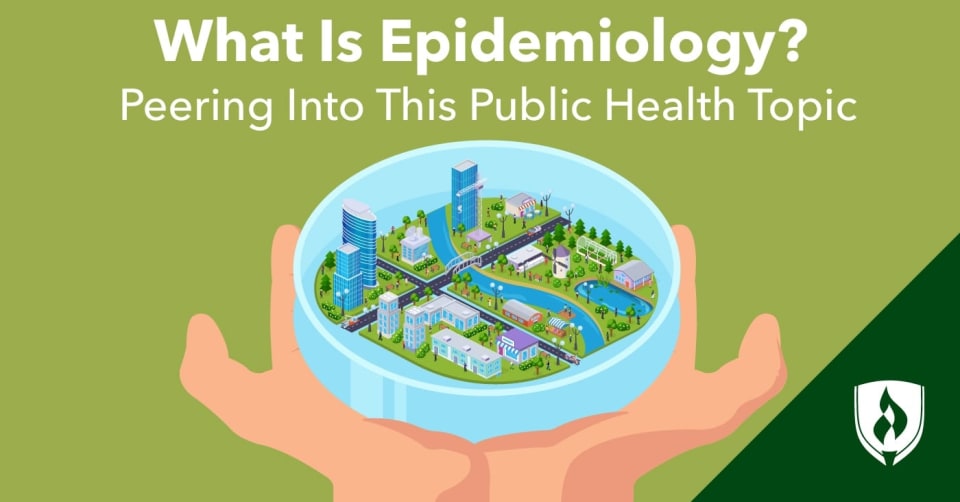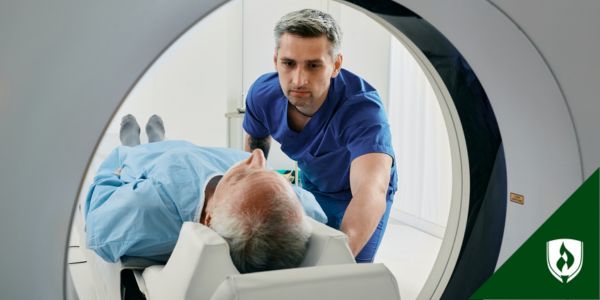
Health-related careers are equal parts exciting and intimidating. You’re thinking about pursuing a medical career, but some healthcare specialties leave you with more questions than answers. The latest healthcare topic to leave you scratching your head is epidemiology.
What is epidemiology? Though the word sounds complicated, this public health specialty is easier to understand than you might think. “Epidemiology is the field of medicine which studies disease outbreak, incidence and patterns to explain the causes and spread of pathogens,” says Adriano Schneider, postdoctoral scholar at the University of California–San Diego Department of Medicine.
Join us as we explore the basics of epidemiology, including the types of epidemiology and the lowdown on how epidemiologists impact our communities for the better.
What is epidemiology? The basics of this public health specialty
Epidemiology is a branch of public health that views a community as the “patient” and various health events as the “condition” that needs treatment, according to the Centers for Disease Control and Prevention (CDC).1 It’s up to epidemiologists to uncover where diseases came from, how they spread and how to treat and prevent them.
Infectious diseases, like the flu or measles, are a large part of what epidemiologists study, but it’s not the sole focus of their work. They also look at injuries, noninfectious diseases like cancer, environmental dangers and natural disasters. “Epidemiological studies are important regardless of the disease as it aims to understand the pattern and possible intervention to control spread,” Schneider says.
You might associate healthcare jobs with working closely with people, but epidemiologists are often concerned with gathering data. They’re interested in data points like the incidence of a disease, which is the number of new cases recorded in a certain population over a period of time, and the prevalence of a disease that tells them how many cases are active in a population. Epidemiologists can then analyze this information and gain a better understanding of how a disease or condition is affecting public health.
Types of epidemiology
Epidemiology is a big field, so epidemiological studies are often broken into smaller subtypes. “Epidemiology can be applied in numerous ways, such as field, clinical and observational,” Schneider says. These different types of studies follow unique parameters to achieve a specific goal. Each type of study plays a part in the aim to treat and prevent disease and other health conditions.
The types of epidemiology can seem confusing at first. Schneider recommends breaking them into two primary categories: experimental and non-experimental.
Experimental epidemiology
Schneider explains that experimental epidemiology studies “intervene on groups to test a hypothesis.” These experimental studies include clinical trials, community intervention, field trials and others. These types of studies are designed so that epidemiologists can potentially find solutions to health concerns, such as a new drug or effective prevention measures. This form of epidemiology contains more active participation—for example, comparing the effect of an experimental diabetes treatment to that of a control group not receiving treatment.
Non-experimental epidemiology
Non-experimental studies are “purely observational and aim to understand what is happening on a given population,” Schneider says. Rather than seeking a particular outcome, epidemiologists use cohort studies, case-control studies, ecological studies and others to gain knowledge about the disease or condition being studied. This approach is focused less on testing the effectiveness of specific courses of action or treatments and more on developing a better understanding of the population.
What do epidemiologists do?
You can already see that the field of epidemiology is different from any other health-related career! Epidemiologists are researchers who spend their days gathering and analyzing data. These public health professionals use scientific processes to solve the mystery of how to prevent harmful diseases and conditions from spreading.
“Epidemiologists are key for influencing public health policies, as they follow a scientific method to describe an existing problem and, when possible, bring a solution along with the cause for the issue,” Schneider says.
The Bureau of Labor Statistics (BLS) shares that epidemiologists typically work in research settings—which should come as no surprise.2 Many epidemiologists specialize in a particular population, such as children or the elderly, environmental health, infectious disease or chronic disease. Those who aren’t involved directly in research may take on advocacy roles, usually as part of a nonprofit organization.
Why epidemiology is so important?
Now that you have a better understanding of epidemiology, it’s no surprise that it’s such an important facet of public health. Epidemiologists work to understand and prevent the spread of disease, and they’re often able to do so much faster than other methods.
“Epidemiology is essential to the understanding and control of outbreaks of newly discovered diseases, when other fields, such as vaccine development and drug discovery, may be actively working but will have a slow response (mainly due to need of trials and regulation),” Schneider says.
Epidemiology also plays a large role in changing public policy around diseases and other health issues. Schneider notes that epidemiologists make significant contributions from the local to the national level. Their work equips public health advocates with the information needed to influence policymakers and craft guidelines for improving health outcomes nationwide.
Make your mark in public health
Epidemiology plays a crucial role in developing our understanding of how disease and other health issues spread and impact our communities. This area of study helps guide public health professionals as they develop the policies and plans needed to help address health issues at a scale that goes beyond the reach of an individual physician or healthcare provider.
Does the idea of a career in public health sound appealing to you? You have options for getting started at Rasmussen University. For example, a Health and Wellness Bachelor’s degree can help prepare you to lead community health education programs developed by public health professionals. At the graduate degree level, the Rasmussen University Master of Public Health degree program can equip you with the skills needed to conduct research and craft public health policy from a variety of leadership roles.
1Centers for Disease Control and Prevention, What is Epidemiology?, [accessed April 29, 2019] https://www.cdc.gov/careerpaths/k12teacherroadmap/epidemiology.html
2Bureau of Labor Statistics, U.S. Department of Labor, Occupational Outlook Handbook, [accessed April 29, 2019] www.bls.gov/ooh/. Information represents national, averaged data for the occupations listed and include workers at all levels of education and experience. Employment conditions in your area may vary.




